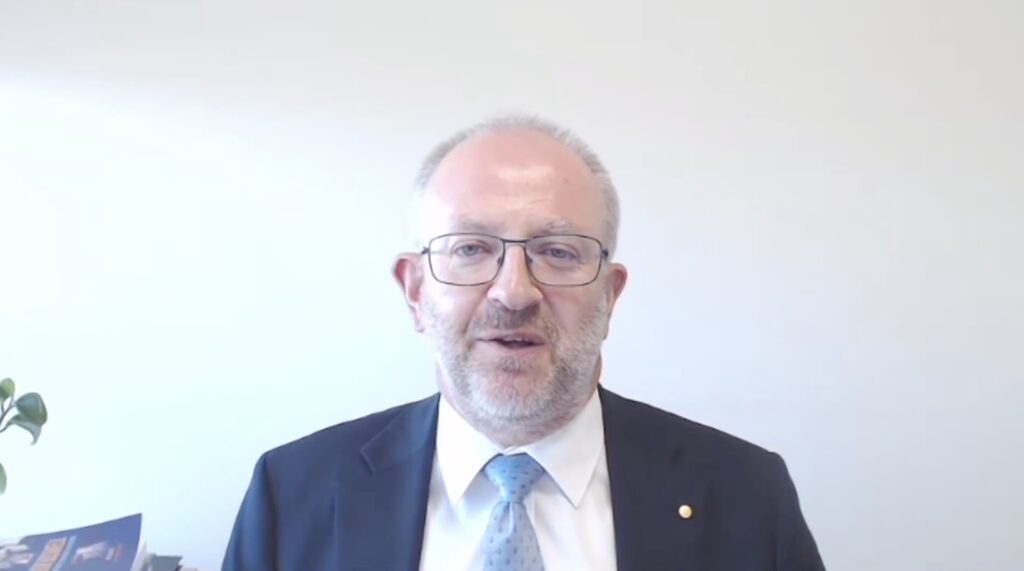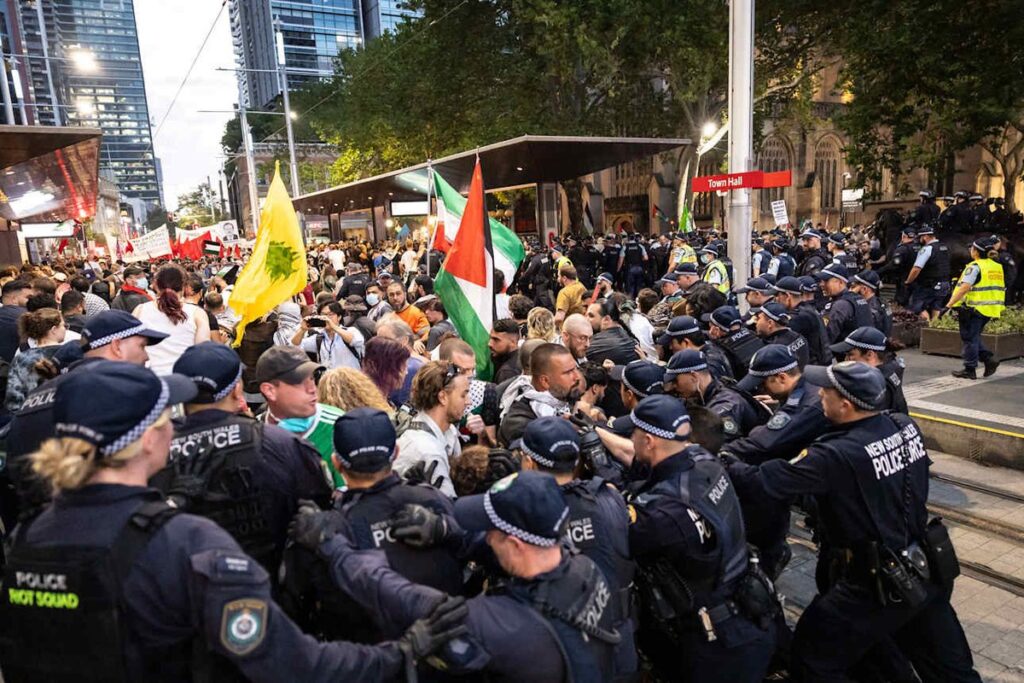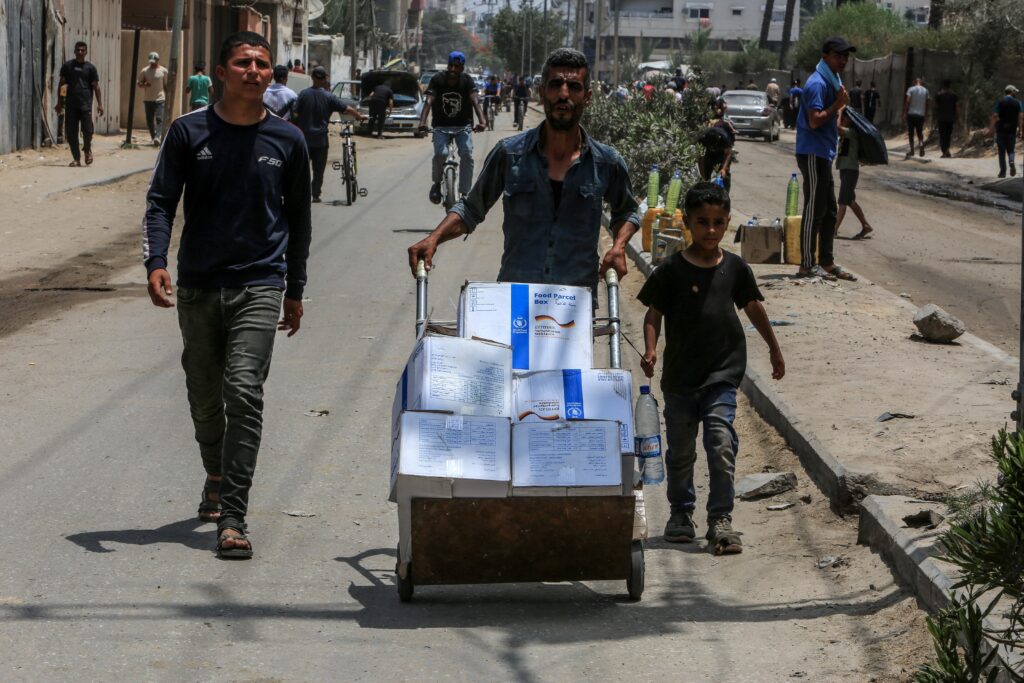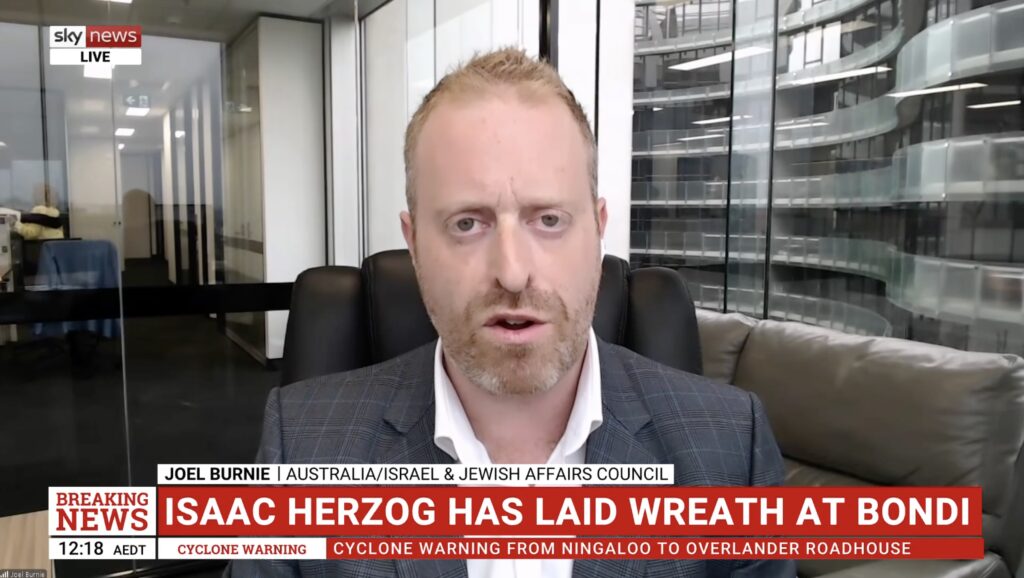UPDATES
Brussels: Preventing similar attacks, and what Israeli experience can teach
March 24, 2016
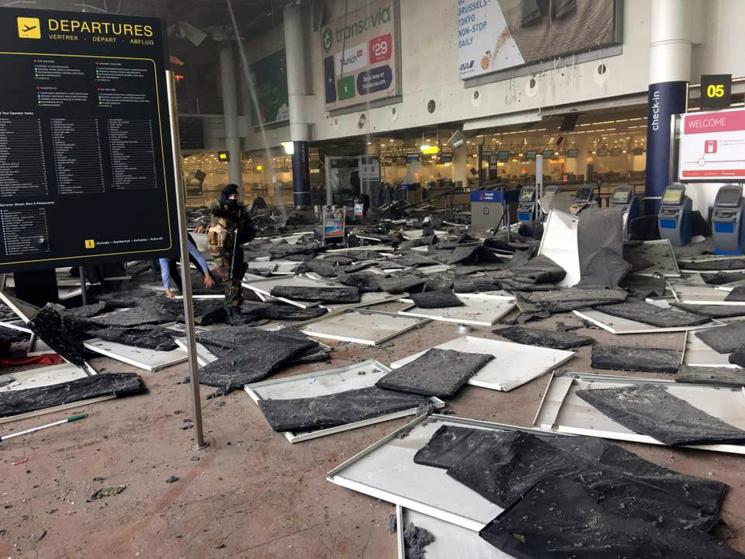
Update from AIJAC
March 24, 2016
Number 03/16 #05
While much ink is already being spilled about the latest ISIS terror attacks in Brussels on Tuesday, this Update tries to add to the coverage by offering the views of counter-terror experts as to what went wrong in Belgium to allow these attacks, and what more might have been done to prevent them.
We lead with noted Washington Institute counter-terrorism expert Matthew Levitt, who looks at some evidence that Belgium was particularly poorly prepared to deal with a terrorism threat. He says it had already been clear since the Paris attacks in January of last year that Belgium was a major source of an Islamist terrorism threat, and while some efforts have been made by authorities in Brussels, it clearly has not been enough. He particularly faults poor staffing levels at existing intelligence and law enforcement agencies. He also highlights lack of adequate information sharing across Europe, and argues “Our adversaries are disciplined and coordinated. We need to be much more so to fight them.” For Levitt’s expert analysis of what went wrong in full, CLICK HERE. For more on how Belgium became the “weakest link” in EU counter-terrorism, see this excellent report from the Washington Post.
Next up is noted Israeli security reporter and expert Yossi Melman, who focuses especially on what Belgium did wrong at Brussels airport, compared to Israeli efforts at Tel Aviv. He describes what happened in Belgium as a “colossal security and intelligence failure” given that authorities were aware an attack might be imminent but failed to take basic precautions such as placing a police checkpoint outside the airport. He says the bigger picture is that the Belgians have been afraid or reluctant to do what is necessary to cope with the terror threat emanating from Muslim radicals in neighbourhoods like Molenbeek – “penetrate terrorist networks, recruit agents and intercept communications.” For his full argument, applying Israeli counter-terror experience, CLICK HERE. More on Israel’s airport security expertise and its relevance is here.
Finally, Ronen Bergman – author and well-known Israeli investigative journalist specialising in military and security affairs – argues that in the wake of Brussels, Europeans needs to shift their thinking about counter-terrorism. Specifically, he argues that, despite reluctance to do so, they will have to do three things that no one has wanted to do up to this point: 1. There will be a need to create a secure perimeter at all public transport stations, not just to board planes; 2. There will be a need to change intelligence gathering to include what is called “Basic Coverage ” – monitoring widespread populations and geographical areas, all the time – about Europe’s Muslim communities; 3. The ISIS base has to be destroyed, and the only way to do so is with some form of ground operation. For his knowledgeable explanation why, based in part on Israel’s experience, CLICK HERE.
Readers may also be interested in:
- American Jewish Committee executive director David Harris was in Brussels during the attacks and writes about it and his history of consultations with European leaders on related issues.
- Four Muslim commentators – Haras Rafiq, Tarek Fatah, Raheel Raza, discuss how to confront the Islamist messaging.
- Max Boot explains what is wrong with the crude solutions to terror offered by people like US Presidential candidate Donald Trump.
- British writer Theodore Dalrymple asks what can be done about places like Molenbeek. Plus, Douglas Murray predicts what will be said – and not said – in the aftermath of the Belgian attack.
- A leading Palestinian official, PA Security Forces Spokesman Adnan Al-Damir, says the West brought the Brussels attack on themselves – a view echoed in Palestinian newspapers.
- An important article on the neglected role of radical Islamic Arabic satellite TV stations in radicalising Muslims, something generally neglected in favour of a focus on social media.
- A look at what opinion polls show about Muslim views on terrorism and extremism around the world.
- Isi Leibler writes about the implications of President Obama’s foreign policy for Israel and the Jewish people.
Brussels Attacks Raise Questions on Readiness
Matthew Levitt
New York Times, March 22, 2016
Because the Islamic State and other terrorist adversaries have become increasingly disciplined and well-coordinated, Western governments need to be even more so to prevent further attacks.
A week after the attacks early last year in Paris against the magazine Charlie Hebdo and a kosher grocery, Belgian police officers were fired on as they executed a search warrant in the town of Verviers. Officials learned that the assailants were members of a terrorist cell that had been planning a significant attack on Belgian police officers or civilians. The incident changed the way counterterrorism officials perceived the Islamic State threat in Europe and made clear that Belgium itself had a greater problem on its hands than it realized.
Before the plot was disrupted, the United States Department of Homeland Security would later explain, nearly all of about a dozen Islamic State plots and attacks in the West had involved lone assailants or small groups. But, the report presciently warned, “the involvement of a large number of operatives and group leaders based in multiple countries in future ISIL-linked plotting could create significant obstacles in the detection and disruption” of new plots.
Indeed, that is now the case, and as the investigation of the even more brutal November attacks in Paris showed, Belgium is a major source of the threat. The attacks on Tuesday in Brussels raised the most serious questions about how prepared the nation was for that threat.
Belgium has two intelligence agencies, a federal police department, many local police departments and a federal Coordination Unit for Threat Analysis. The federal police have begun an initiative that has trained nearly 18,000 police officers to recognize the signs of radicalization.
The federal police maintain a consolidated list of terrorism suspects focused on some 670 people who have gone to fight in Syria and Iraq (and, more recently, Libya), those who have returned from fighting abroad, those who seem inclined to become foreign terrorist fighters and those who radicalize and support them. Another list, focused on about 100 purely criminal cases, may be combined with that because of the increasing overlap between the two. Belgium intensified efforts to prevent young people from becoming radicalized over the last 18 months, with federal security agencies coordinating with district task forces to share information.
And yet the system is still a work in progress. There aren’t enough police officers in Molenbeek, the Muslim-majority municipality in Brussels that has been linked to most Belgian terrorist cases and where Salah Abdeslam, the lone surviving suspect in the November attacks in Paris, grew up and was captured in a police raid last week. After the November attacks, 50 more officers were assigned to Molenbeek, but since the local department had 185 empty slots, this still left a huge deficit. Just eight officers are in the community policing group there.
To its credit, the Belgian government quickly instituted 12 new counterterrorism measures after the Verviers raids. Eighteen more were put in place after the Paris attacks. But what is needed are not new programs but full staffing of the existing intelligence and law enforcement agencies, and removal of the walls between intelligence services.
Belgium is not unique in its need to improve. The European Union counterterrorism coordinator recently reported that several member states still have no electronic connection to Interpol on all their border crossings. More to the point, the coordinator bluntly concluded that “information sharing still does not reflect the threat.” For example, European databases record only 2,786 verified foreign terrorist fighters despite “well-founded estimates that around 5,000 EU citizens have traveled to Syria and Iraq to join ISIL and other extremist groups,” the report said. Worse still, over 90 percent of the reports of verified foreign terrorist fighters came from just five member states.
Europol, the European Union’s law enforcement agency, notes that the Islamic State has developed an “external action command” to train operatives in carrying out sophisticated attacks in the West. Our adversaries are disciplined and coordinated. We need to be much more so to fight them.
Matthew Levitt is the Fromer-Wexler Fellow and director of the Stein Program on Counterterrorism and Intelligence at The Washington Institute.
Back to Top
————————————————————————
Analysis: What Europe has to learn from Israel on security
What happened in Brussels on Tuesday was the result of years of negligence.
There are 11 visible security and inspection points at Ben-Gurion Airport. They spread from a roadblock at the airport entrance to the airplane gates.
It is not just because the Tel Aviv hub is a relatively small airport compared to major European and American airports, which can afford to exercise the strictest security measures regardless of the cost it is the byproduct of a holistic security doctrine engraved in nearly 50 years of experience from blood and tears.
Since its first tragic failures, Israel has improved and upgraded its security measures on land and in the air. For decades, security experts from international airlines, police forces and security agencies have come here to learn Israeli know-how and doctrines.
Unfortunately, this it happens only after spectacular terrorist attacks, such as the 1988 Pan Am bombing and 9/11. It took western democracies a while to reach the conclusion that human life is no less important than human rights. Most probably it will happen this time, too.
Sure, there is no hermetic security, and terrorists take advantage of loopholes. But there is no need to be a genius to understand that what happened yesterday in Brussels was a colossal security and intelligence failure. According to media reports, Belgian authorities had advance warning about an imminent terror attack.
Yet neither the countrys police nor its security forces increased their presence in the streets or by deploying check points at the entrances to the airport. No wonder that the terrorists managed to enter with explosive belts.
What happened yesterday was the result of years of negligence.
For decades, Belgiums police have been afraid to enter rough Muslim neighborhoods such as Molenbeck, in the capital. These areas first became heavens for criminal gangs dealing in drugs, protection and weapons. Then they turned into hotbeds of radical Muslim and anti-western trends.
In recent decades, such neighborhoods across Europe have become fertile recruiting grounds for young Muslims attracted by the slogans of jihadist groups such as Islamic State. Now, radicalized Muslim are returning from the Syrian and Iraqi battlefields.
They are ideologically hardened and militarily trained to perform on the home front.
To gather intelligence, security agencies need to penetrate terrorist networks, recruit agents and intercept communications.
It seems that the Belgian police were either afraid or reluctant, or they lacked the determination to do so. Perhaps all of these. These years of negligence resulted in a reality for which the Belgian public and the world pay the price.
Belgiums security services lack necessary intelligence. The writing was long on the wall. Since 9/11, as well as Madrid, London, Turkey, Bali and more, the international community should have come to realize that it is at war. It took measures but was slow, even reluctant, to draw the necessary conclusions.
Islamic State claimed responsibility for yesterdays attacks, and it makes sense. ISIS has been suffering major defeats on the battlegrounds of Syria and Iraq. Its megalomaniacal fantasy of creating a 7th-century state has been shattered. It now finds itself back to square one being a copycat of al-Qaida.
Back to Top
————————————————————————
The terror attack in Brussels: Three steps that nobody wants to take
Analysis: While difficult, several changes need to be made in the wake of the terrorist attacks in Brussels. Mental shifts will have to occur in the minds of Western, specifically European, leaders on the topics of aviation, intelligence, and the use of military power.
Ronen Bergman
Ynet.com, March 23
The first lesson is regarding the worldwide aviation system, which underwent a rare reform after the attacks of September 11: Rigorous security checks before boarding, the prohibition of sharp objects, and the supervision of routes of entry and exit to and from the aircrafts. This reform succeeded: Al-Qaeda made several attempts to blow up planes mid-flight, and they failed.
Three possible key lessons have arisen from the joint terror attacks in Belgium. All three of them require a fundamental change in investment, effort, agenda, and most importantly in the West’s worldview.Moreover, pictures of the organization’s leaders killed or being tried at the International Criminal Court in The Hague would have a psychological value of their own.
The first lesson is regarding the worldwide aviation system, which underwent a rare reform after the attacks of September 11: Rigorous security checks before boarding, the prohibition of sharp objects, and the supervision of routes of entry and exit to and from the aircrafts. This reform succeeded: Al-Qaeda made several attempts to blow up planes mid-flight, and they failed.
But this reform applied only to the planes themselves. It didnt affect the airports or other means of mass transit (passenger ships, buses and trains). Brig. Gen. (res.) Dani Arditi, the head of the Israeli Counter-Terrorism Bureau at the time, warned preceding the 2004 attacks on Spanish trains that passenger trains would be the attackers’ next target and that Europe was unprepared.
Last August, a Moroccan jihadist planned to commit a massacre against passengers on a train from Paris to Amsterdam. Two marines managed to thwart the attack at the last minute.
At the end of October, an ISIS cell in the Sinai successfully blew up a Russian passenger flight midair.
On Tuesday, the attackers operated inside an airport and a subway station. This demands another revolution in public transit, and this time for all the different means of transportation, including the creation of a secured perimeter that includes all stations and ports. That change would entail, however, a great deal of effort, tremendous nuisance to passengers and a massive financial investment.
The second lesson is regarding intelligence. The enemy that European intelligence services are facing is young, talented, crosses borders, uses the local population and knows how to coordinate and organize timed operations in short periods of time, employing encrypted means of communication. Against such an enemy, the West must fundamentally change the perceptions of intelligence, coordination, manpower, resources and legislation, as well as make compromises on human rights.
Situated at the crux of the change is something that most Europeans would find to be in strike contradiction to their beliefs and ethics: It’s what the Shin Bet (the domestic Israeli security agency) calls “Basic Coverage.” It means monitoring widespread populations and geographical areas, all the time, at high resolution, even those who do not raise any specific suspicion. Simply put: tracking large Muslim populations in Europe, and not just those against whom particular information has been received. Basic Coverage is executed by employing human and technological resources in every street, in community centers and in mosques and with intelligence operatives’ local knowledge so complete, it’s as if they lived there.
This is how the Shin Bet operates vis-à-vis the Palestinian population. Without Basic Coverage, Israel would not have triumphed against the suicide-bomber intifada a decade ago.
The third lesson: Every additional terror attack on European soil brings closer the moment that the West will have to make a call, and do what it most dreads: ground operations against ISIS in Syria and Iraq.
The bitter experience of the post-US invasion of Afghanistan and Iraq is engraved deep in the DNA of Europe’s leaders and in the legacy of President Barack Obama. But this is only a partial lesson.
The invasion of Afghanistan, a country ruled by a terrorist organization, achieved its first goal. It scattered Al Qaeda’s commanders throughout the Middle East and Asia, made its operations much more difficult and helped the US undertake a series of assassination operations that seriously damaged the central core of the organization. In 2005, Bin Laden and Ayman al-Zawahri decided to cease most of their operations in the West and refocus on the Middle East.
Today, the central Jihadist organization, ISIS, again has a large territory under its control. There is a huge difference between an organization operating under these conditions, that not for nothing designates itself the Islamist State, and a scattered and fragmented organization whose leaders are constantly on the run.
The Istanbul suicide bomber this week is an excellent example: Mehmet Ozturk travelled between Turkey and Syria several times, came back to rest and equip himself every time that he felt that the manhunt after him was closing in, until he was ready to execute his final mission.
A ground operation does not necessarily mean a full occupation of Syria and Iraq, but it must include the elimination of principal ISIS bases and capturing or killing the senior commanders: al-Baghdadi and the former Iraqi generals who serve as his aides.
Tags: Europe

